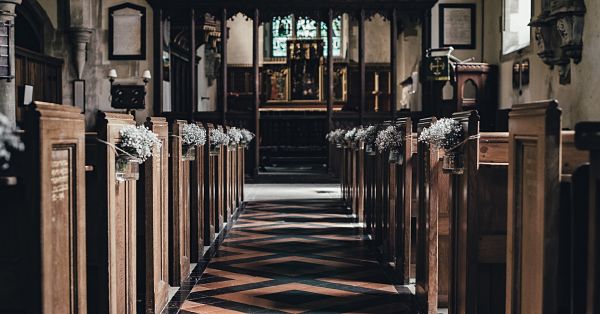 Boethius was a good man, but a tyrant was about to kill him. This is not inspiriting and Boethius despaired until Philosophy came to the rescue. If you major in philosophy, one thing you can point out to skeptical parents is that if a tyrant imprisons you, the training will help.
Boethius was a good man, but a tyrant was about to kill him. This is not inspiriting and Boethius despaired until Philosophy came to the rescue. If you major in philosophy, one thing you can point out to skeptical parents is that if a tyrant imprisons you, the training will help.
Philosophy combined with Christian theology (as it was in Boethius) does help. Christianity provides the hope, data through revelation, and philosophy shows that this hope is rational. Nobody pushed to the bottom emotionally can use the promise of Disney or any other kind of magic. We need good news as real as the bad news.
If hope is not sturdy, then it does no good and philosophy makes hope invincible. Eventually, the presumptuous tyrant killed Boethius, but the old philosopher’s hope did not disappoint him. The unjust ruler made Boethius a world class writer, Boethius is remembered mostly for the book he wrote in prison, and prepared his soul for death. Everyone dies, but the the tyrant’s foolishness was to give philosopher time to prepare and so die with dignity.
What did Boethius learn in prison?
Boethius says that he could believe that though the particulars of his life made no sense, the plan of his life was in God’s hands. At first, the philosopher could not see the plan in what was happening to him. Philosophy did not come with cheesy cheer nor with a detailed picture of “what God was doing.”
Giving us The Plan in enough detail to “justify” God is impossible to develop for some very good reasons having to do with ethics, philosophy, and science. Ethically, God cannot betray His dealings with any individual to self-justify. Philosophically, God has knowledge that is too extensive to share, but would be necessary for us to learn in order to know His plan. This is true, because science reveals a radically interconnected world.
Instead of attempting the impossible (as Word of Faith preachers do), Philosophy demonstrated to Boethius two things:
- He could not possibly understand God’s plan.
- He reasonably could trust God’s goodness and so His plan.
Human free will and the free will of any other beings in the universe (angels? Extra-terrestrial life?) radically complicate the predictability of natural events. If you go left instead of right, then the entire natural world is changed. If a tree grows in Brooklyn, then a chain of events is started that might lead to a bumper crop of butterflies in Modesto. God has a plan that takes into account all the contingencies, including our free choices, and makes this the best of all possible worlds.
God knows all, but, thank God, He does not tell all. He knows our innermost hearts and God keeps that to Himself. He is not so insecure that He must tell His dealings with us to justify himself to a Twitter atheist. Over time, and time keeps going, God heals, mends, and gives hope. Boethius is taught that God is timeless. He exists outside of the chronological dimension and so sees all in His Now. Today for God is the day of Creation, Fall, Redemption, and Completion. God knows. We can freely choose, because God is never foreseeing what we do, but seeing.*
Philosophy cannot give us the plan, but can point us to the Good, the very nature of God. If we see the Good, as Plato suggests in Symposium, and we see God’s nature, then we can trust God. We are told there is a plan to heal the evils done by free will and by contingency in the natural world. We know God does not lie, because God is good. This knowledge gives us reasonable hope and this substantial hope is the faith that saves.
God, have mercy on me a sinner.
*Start reading a defense of this idea in Stump and Kretzmann.
I was honored to hear both philosophers present these ideas. Eleonore Stump is the very model of a good philosopher.











